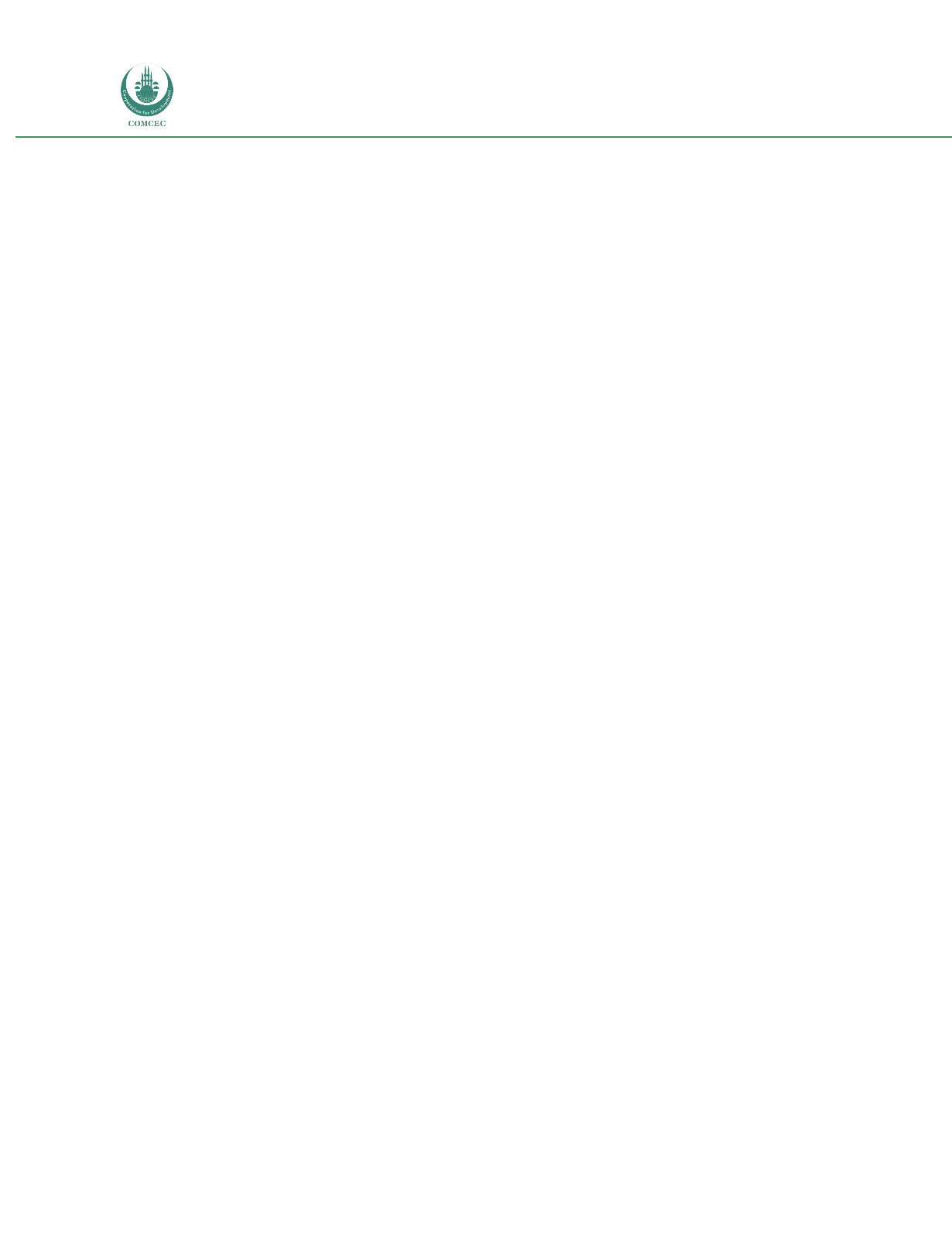

Strengthening the Compliance of the OIC Member States
to International Standards
82
Historically, SPS issues have been a particular constraint for some Bangladeshi exports, including fresh
fruits and vegetables, and fish and crustaceans. The EU is a significant export market for these products.
Recent data indicate that there has been some upgrading in these sectors: only four notifications of
rejected shipments were made in 2015, down from 10 in 2010. Of course, the presence of any border
rejections indicates that there are compliance issues in these important sectors. Moreover, it may be the
case that significant quantities of these goods are not exported to the EU at all because producers know
that they do not meet relevant standards and therefore risk rejection. There is no way to measure this
effect, but it highlights the fact that in particular in the area of food handling and safety, Bangladesh still
has some distance to travel in terms of promoting export competitiveness and upgrading production to
meet international norms.
In relation to SPS, compliance issues for Bangladeshi exports center on health and safety issues. In
particular, fisheries products are tightly regulated in the EU, and require the putting in place of
appropriate hazard management systems. The issues that have arisen with border rejections suggest
that Bangladeshi exporters have in some cases had difficulties complying with these requirements. More
broadly, attention to product quality and freshness, as well as issues of hygiene and safety, is at the core
of developing export competitiveness in sectors affected by SPS measures abroad.
For textiles and clothing, the key compliance issues are quality and uniformity. For retailers in the EU
and USA to stock garments from Bangladesh, they need to be sure that they are of consistent size, in line
with standards prevailing in the import market. A certain level of quality is also required, in the sense
that garments must retain their color, and be able to sustain laundry treatment for a certain period.
Minimum safety standards, for example relating to flammability, are also an issue, but more particularly
in relation to certain categories of garments, such as baby clothes. Global buyers are able to exercise
significant power to require that suppliers comply with these kinds of standards, and there is evidence
that Bangladeshi producers are increasingly able to do so. Nonetheless, the environment is a very
competitive one, with sources of low cost supply elsewhere in Asia, so standards upgrading will be
important to maintain Bangladesh’s position in key developed markets.
6.2.1.5
Policy Implications of Bangladesh’s Experience
Experience in Bangladesh shows that developing countries face significant challenges in terms of setting
up comprehensive standards and quality infrastructure. Even though Bangladesh is a populous country,
there are significant resource constraints in terms of finances and capacity. As a result, it has needed to
effectively leverage assistance from development partners and international agencies. Despite these
challenges, there is a clear recognition on the part of the authorities that harmonization with
international standards represents a sensible starting point for standardization work in many cases, and
















